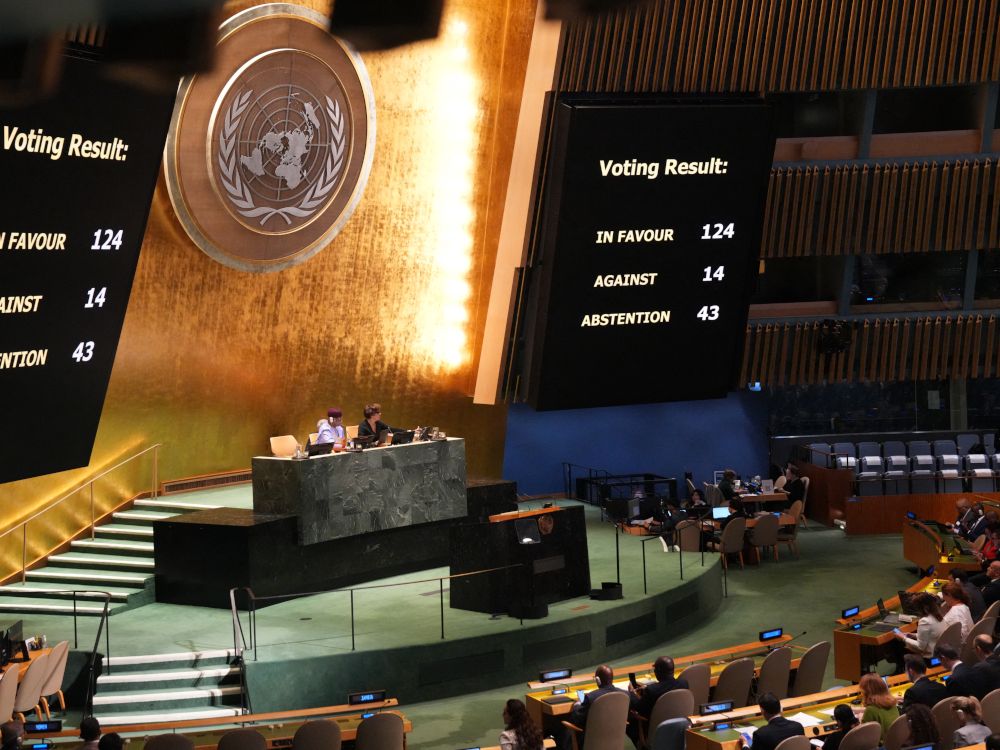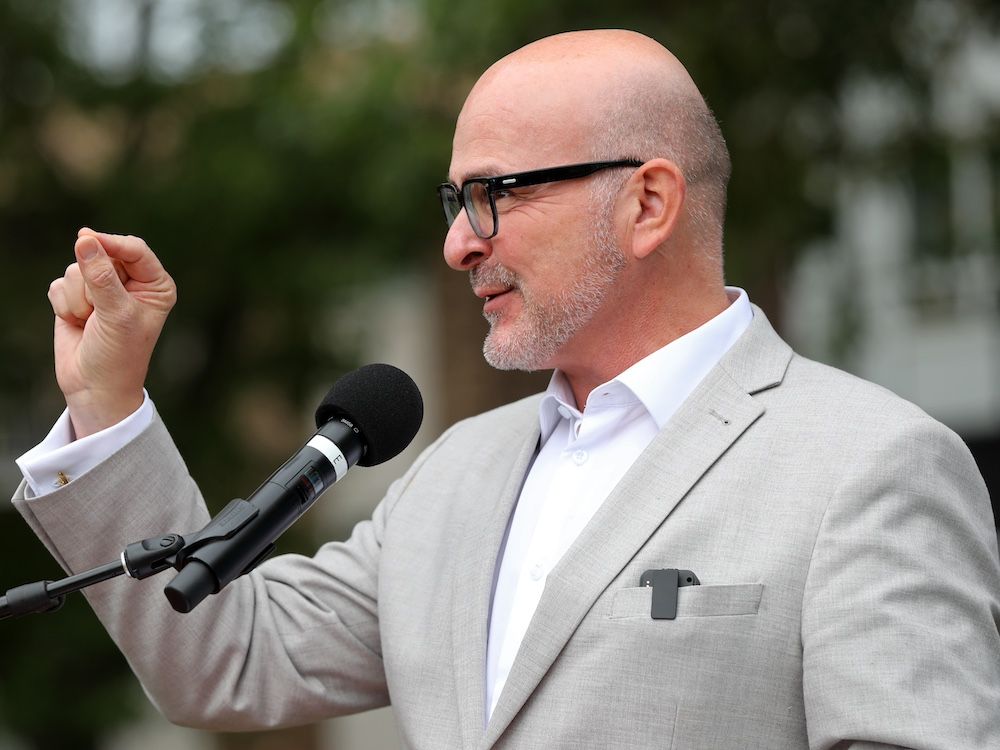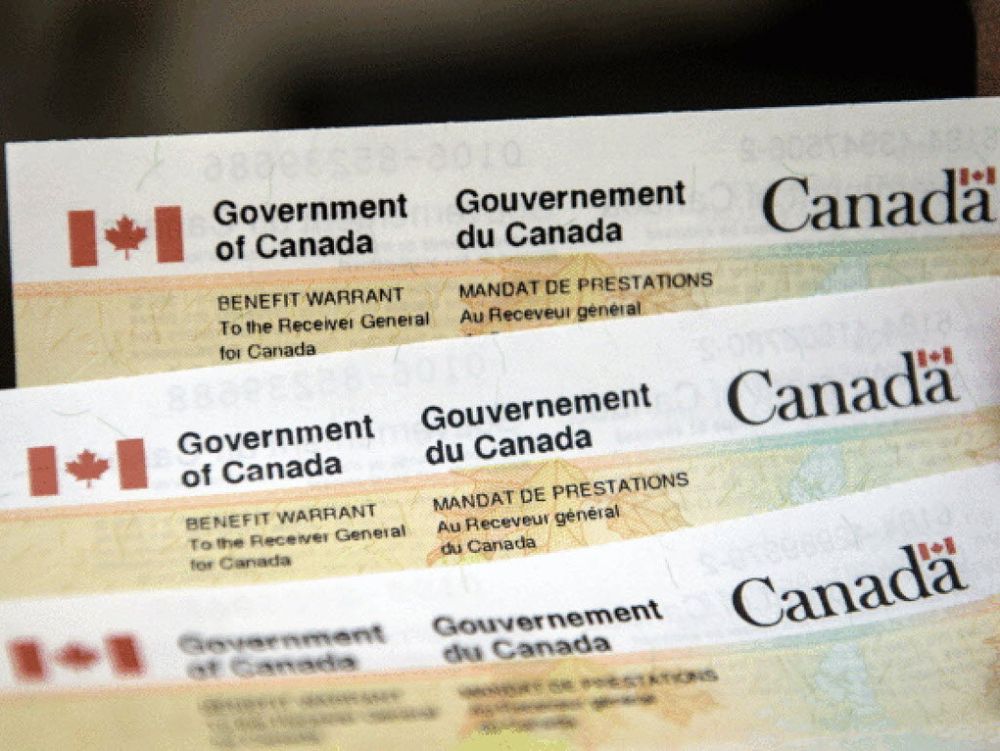The intent is good, but without enforcement, tougher anti-idling rules won't do much to help Ottawa fight pollution or climate change.
Get the latest from Bruce Deachman straight to your inbox
Published Sep 20, 2024 • Last updated 0 minutes ago • 4 minute read

On Thursday, a city committee approved a stricter anti-idling bylaw for Ottawa, replacing the one council enacted back in May 2007. Full council will likely pass it Oct. 2.
Unfortunately, it’s not likely to make much of a dent in our fight against pollution and climate change — at least not on its own.
The new bylaw would see a reduction in the maximum idling time allowed, from the three consecutive minutes each hour that’s currently in place, to just one minute. It would also introduce a five-minute idling limit when the outdoor temperature falls below 0°C or gets higher than 27°C (including Humidex). The current bylaw sets the lower temperature threshold at 5°C.
Advertisement 2
THIS CONTENT IS RESERVED FOR SUBSCRIBERS ONLY
Subscribe now to read the latest news in your city and across Canada.
- Exclusive articles from Elizabeth Payne, David Pugliese, Andrew Duffy, Bruce Deachman and others. Plus, food reviews and event listings in the weekly newsletter, Ottawa, Out of Office.
- Unlimited online access to Ottawa Citizen and 15 news sites with one account.
- Ottawa Citizen ePaper, an electronic replica of the print edition to view on any device, share and comment on.
- Daily puzzles, including the New York Times Crossword.
- Support local journalism.
SUBSCRIBE TO UNLOCK MORE ARTICLES
Subscribe now to read the latest news in your city and across Canada.
- Exclusive articles from Elizabeth Payne, David Pugliese, Andrew Duffy, Bruce Deachman and others. Plus, food reviews and event listings in the weekly newsletter, Ottawa, Out of Office.
- Unlimited online access to Ottawa Citizen and 15 news sites with one account.
- Ottawa Citizen ePaper, an electronic replica of the print edition to view on any device, share and comment on.
- Daily puzzles, including the New York Times Crossword.
- Support local journalism.
REGISTER / SIGN IN TO UNLOCK MORE ARTICLES
Create an account or sign in to continue with your reading experience.
- Access articles from across Canada with one account.
- Share your thoughts and join the conversation in the comments.
- Enjoy additional articles per month.
- Get email updates from your favourite authors.
Sign In or Create an Account
or
Article content
You probably didn’t know these rules even existed, let alone that they are being toughened.
There’s more: If your vehicle is unoccupied, the one-minute rule would apply, regardless of the temperature. So don’t you dare start your car and then run inside to warm up or grab that lunchbox you forgot, lest your next-door neighbour call the law.
Additionally, registered owners of offending vehicles could face charges, not just the operators, as is currently the case.
There remain, of course, exceptions, including mobile workshops, first responders and those with medical conditions.
Meanwhile, the range of fines transgressors could face is considerable. The rules allow for fines into the thousands, but bylaw chief Roger Chapman says those who have been cited under the existing bylaw have been fined $500 each.
If approved, the new bylaw would come into effect on Jan. 1, 2025.
And then what? If enforcement continues at its present level, not much.
Don’t get me wrong. I’m not a proponent of idling — who is? — and there’s plenty of evidence that it’s not healthy for us, and that reducing idling lessens greenhouse gas emissions and saves on fuel. In their 29-page review of the bylaw (yes, 29 pages! Plus an accompanying 14-page “What We Learned Report,” based on public surveys and consultations), city staff wrote that “If every driver of a light or medium duty internal combustion vehicle reduced daily idling by two minutes, it would result in approximately 31.2 million kilograms less carbon dioxide emitted over the course of a year, equivalent to removing 6,780 internal combustion vehicles from Ottawa roadways.” Or, if you prefer, the amount that would be offset by planting nearly 15,000 trees, with a savings of about $20 million in fuel costs.
By signing up you consent to receive the above newsletter from Postmedia Network Inc.
Article content
Advertisement 3
Article content
But those figures, staff concede, are best-case ones, not an expected outcome.
The intent is good. After all, the city declared a climate emergency five years ago, and decreasing idling fits in with its Climate Change Master Plan. The new one-minute rule follows the best practices outlined by Natural Resources Canada, and aligns with other cities, including Toronto, Kingston and Vancouver. (Outremont, a Montreal borough, this year adopted a draconian 10-second anti-idling rule.)
But bylaws we can’t or don’t enforce are toothless.
The city pretty much admits as much in its review, noting that when it was introduced in 2007, the bylaw was intended as a public awareness tool, stressing education over fines.
Enforcement has been, and will continue to be, predominantly on a complaint basis, which is how many bylaws, such as noise infractions, are typically dealt with. And as with noise complaints, idling issues often resolve themselves by the time a bylaw officer arrives.
In the 17 years that the current bylaw has been in place, for example, there were just over 4,600 complaints about idlers, or roughly 270 a year. Over the last five-and-a-half years, bylaw officers issued an average of just 10 verbal warnings and seven infraction notices per year, along with an average of 57 occasions annually where there was no evidence of an offence by the time officers showed up (often, presumably, in vehicles that, idling or not, would have added to our greenhouse gas emissions).
Advertisement 4
Article content
So ask yourself: if 17 drivers of a light or medium duty internal combustion vehicle reduced daily idling by two minutes, how much less carbon dioxide would be emitted each year? What would be the tree-planting equivalent? I’m guessing not much.
Chapman said on Thursday that the proposed bylaw would make it easier to clamp down on habitual nuisance idlers and provide targeted enforcement.
And yes, perhaps the city ought to address the IT issue that prevents complainants from uploading a video of idlers to an online portal. Or maybe, as Alta Vista Coun. Marty Carr noted, simply having a stronger bylaw in effect will encourage motorists to think about and change their behaviour.
But for that to work, the city needs to lean more heavily on the horn of education and awareness, as some at Thursday’s meeting noted. Consider that the city, we were told, currently has no budget to erect “No Idling” signs outside schools. That’s ridiculous.
Similar to how it let residents know about changes to garbage pickup, the city should send out a mailer letting them know about the anti-idling bylaw and the negative environmental, economic and health effects of idling.
Advertisement 5
Article content
Other actions could include designating specific areas as idle-free zones, offering incentives for using fuel-efficient cars, and – brace yourself! – improving public transit.
Otherwise, making an unenforceable bylaw tougher, and then not educating residents about it, is simply a lot of hot air.
Our website is your destination for up-to-the-minute news, so make sure to bookmark our homepage and sign up for our newsletters so we can keep you informed.
Recommended from Editorial
-

Deachman: Demise of the Belltown Dome — Is this what awaits Ottawa's other urban rinks?
-

Deachman: I asked public servants how they felt about going back to the office
Article content
.png)
 2 hours ago
6
2 hours ago
6



































 Bengali (BD) ·
Bengali (BD) ·  English (US) ·
English (US) ·